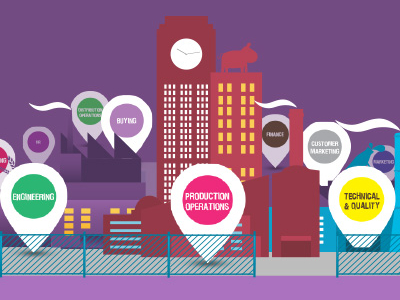What’s it all about then?
The retail manager is responsible for running the store on a day to day basis – in food retail this could be anything from a small delicatessen through to a large supermarket.
You’ll keep an eye on the sales of products and make sure that these are readily available and properly stocked and displayed; you may also be responsible for replacement ordering.
The role involves managing everything that happens within your store including stock control, human resource issues, dealing with complaints, sales issue and so on.
What might I be doing?
As a store manager you’ll be kept busy with many of the following responsibilities:
- Managing staff, including disciplinary issues as necessary
- Recruiting, training, motivating and appraising staff
- Ensuring high levels of customer service
- Maintaining sales figures and pricing
- Managing stock rotation and wastage levels
- Administering financial records and reports
- Analysing sales figures, forecasting future sales and maximising profits
- Generating ideas for product promotions and displays
- Ensuring that store budgets and forecasts are accurate
- Managing store health and safety
- Liaising with senior company management
- Ensuring compliance with food safety legislation
- Attending and chairing staff meetings
- Spending time on the sales floor
- Undertaking competitor analysis
What will be expected of me?
To be an effective retail food manager you’ll need to demonstrate a high level of commercial acumen as you lead your team in selling items which are all perishable to some degree.
You’ll need to be a good negotiator as well because you’ll have to liaise with senior company management and deal with any customer issues that arise.
You’ll be an enthusiastic and confident person who is able to motivate people whilst, at the same time, being unafraid to deal with any disciplinary issues that arise.
An energetic type is needed as you’ll be on your feet much of the time, making quick and effective commercial decisions; at the same time you’ll have to spend time on administrative issues and be able to analyse complex financial information.
And of course, you’ll need to have the usual high levels of literacy, numeracy and IT, and be organised and resourceful and can as you’ll work to tight deadlines.
What can I expect?
As a retail store manager, you can expect to work non-standard hours because retail outlets tend to open for much if not all the time; this means you may have to cover shifts or weekends, depending on the requirements of your employer.
During peak periods, such as the run up to Christmas, you can expect to work more than 40 hours per week, although this will be reflected in your annual holiday allowance.
If you work for a major chain of supermarkets, you’ll very likely be expected to be flexible and able to move from one place to another if the job demands such a move; this will be discussed in advance with your employer. This is certainly likely if you want a career in a more senior role.
Finally, you can expect an extremely demanding but rewarding job working as a retail manager.
What qualifications do I need to get in?
There aren’t any set requirements for the role of retail manager and you may have started your career working in retail having left school with at least 5 good GCSEs, perhaps as an apprentice.
You could also consider taking a retail related qualification at college or potentially a Higher Level Apprenticeship.
If you want to go to university, many retailers will have graduate trainee programmes as another potential entry point; employers will consider graduates from a wide range of disciplines, but the following options could be useful:
- accounting and finance
- business studies
- marketing
- retail management
- food management and marketing
- consumer studies
However, should the retailer be a specialist, then a more relevant qualification may be a better option.
Several university degrees will require you to take a placement; these can often lead to an offer of full time employment when you qualify.
Many companies will expect applicants to have some retail experience so any part time work while you’re at school or university could prove very advantageous.
Where would I get these qualifications?
For apprenticeships and further education courses you should contact your local careers advisor or college in the first instance and see what’s available that suits your aspirations.
Degrees related to food and retail are widely available throughout the country and you should check out the prospectus of any university or college for details; some examples include:
- BSc (Hons) in Food Management and Marketing
- BSc(Hons) in Business Management
- BSc(Hons) in Business Studies
- BSc(Hons) in Consumer Studies
- BSc(Hons) in Retail Marketing Management
- BA in Retail Management
Remember that there are loads of other qualifications are available, and you should check prospectuses and course finders for up to date details.
What about further training?
There are many areas of retail and many retail managers undertake relevant postgraduate study to help develop their careers. These can include business, retail and marketing type qualifications, although you might undertake specialist courses, depending on your aspirations.
Membership of a professional body such as the Chartered Institute of Purchasing and Supply might be useful, and they have a range of relevant qualifications relevant to your role as a retail manager.
If you’ve started as a graduate trainee, your employer will likely have encouraged you to take several undertake courses and professional qualifications as part of your development.
There are far too many postgraduate qualifications to list here; the easiest thing to do is decide what you want to study and where, then have a look at the university website.
Your employer may even help pay for your training as they will ultimately benefit too!
Anything else I might need to know?
Yes, the retail sector is extremely competitive, and many large supermarkets and other retailers are having to amend their models to cope with the ever growing use of the internet to buy things.
What this means to you is that this is an exciting time to consider a career in retail as you’ll be part of a sector which remains vital to the economy of the country and will continue to develop in new directions!
 cy
cy





